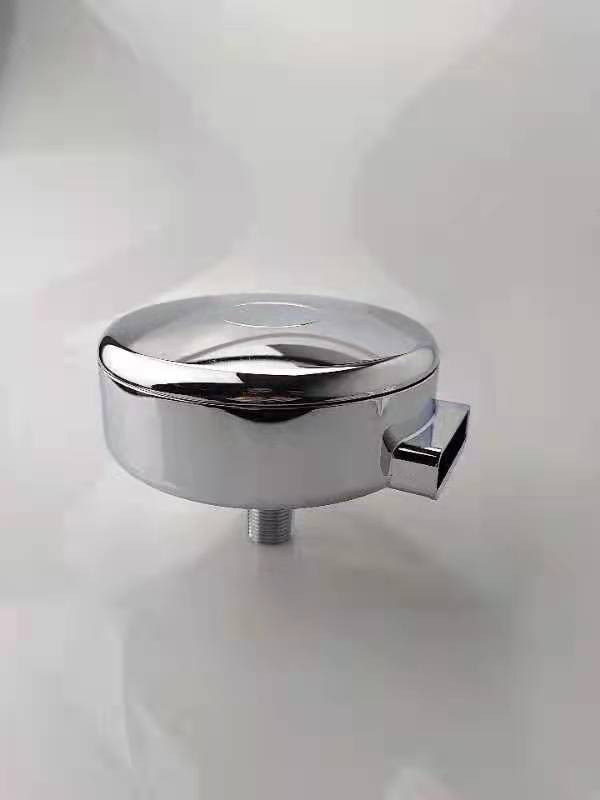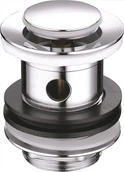Hey there! As a supplier of Rinser Glass, I've got a ton of insights to share about how these nifty little gadgets react to sudden temperature changes. Let's dive right in!
First off, let's understand what a Rinser Glass is. It's a handy device that helps you quickly and efficiently clean your glasses. You can find different types, like the Sink With Glass Rinser, Stainless Steel Glass Rinser, and Sink Cup Rinser. These are designed to make your life easier when it comes to keeping your glasses spot - free.
Now, when it comes to sudden temperature changes, Rinser Glasses are made of various materials, and each material responds differently. Most commonly, they're made of glass, stainless steel, or a combination of both.
Let's start with glass. Glass is a pretty well - known material, but it has its quirks when it comes to temperature. Glass is a poor conductor of heat. That means when there's a sudden temperature change, the heat doesn't spread evenly throughout the glass. For example, if you've just used hot water to clean a glass in the Rinser Glass and then suddenly pour cold water in it, the outer layer of the glass will cool down much faster than the inner layer. This creates stress within the glass.
When this stress gets too high, the glass can crack or even shatter. It's like when you're stretching a rubber band too far. Eventually, it just snaps. The same principle applies to glass under sudden temperature changes. However, not all glass is created equal. Some types of glass, like tempered glass, are more resistant to these temperature - induced stresses. Tempered glass is heat - treated during the manufacturing process, which makes it stronger and more able to handle rapid temperature shifts.
Stainless steel, on the other hand, is a great conductor of heat. When there's a sudden temperature change, the heat spreads quickly throughout the stainless - steel part of the Rinser Glass. This means that the stress caused by uneven heating or cooling is much less of a problem compared to glass. Stainless steel can handle a wide range of temperatures without cracking or deforming easily. It's durable and can withstand the wear and tear of daily use, even with sudden temperature changes.


But it's not all rosy with stainless steel either. One issue is that stainless steel can react with certain chemicals in the water, especially if the water is hard. Hard water contains minerals like calcium and magnesium. Over time, these minerals can build up on the surface of the stainless - steel Rinser Glass, leaving behind limescale deposits. These deposits can affect the appearance and functionality of the Rinser Glass.
Now, let's talk about the combination of glass and stainless steel in a Rinser Glass. This hybrid design tries to take advantage of the best of both worlds. The glass part gives it an aesthetic appeal, while the stainless - steel part provides strength and better heat - handling capabilities. However, this combination also brings its own set of challenges.
The joint between the glass and stainless steel can be a weak point. When there's a sudden temperature change, the different expansion and contraction rates of glass and stainless steel can put stress on the joint. If the joint isn't properly sealed or designed, it can lead to leaks or even separation of the two materials. This is something that manufacturers need to be really careful about when designing a Rinser Glass with both glass and stainless - steel components.
So, how can you take care of your Rinser Glass to minimize the effects of sudden temperature changes? Well, first of all, try to avoid extreme temperature changes. If you've been using hot water, let the Rinser Glass cool down gradually before introducing cold water. You can also use a soft cloth to dry the glass or stainless - steel parts after each use. This helps prevent water spots and reduces the chances of mineral deposits building up.
If you have a glass Rinser Glass, it's a good idea to choose one made of tempered glass. It'll give you more peace of mind when it comes to temperature changes. And for stainless - steel Rinser Glasses, using a water softener can help reduce the build - up of limescale.
In the real world, these temperature - related issues matter a lot. For restaurants and bars, a Rinser Glass that cracks or leaks due to temperature changes can be a huge headache. It can disrupt the service and lead to additional costs for repairs or replacements. That's why it's so important to choose a high - quality Rinser Glass that can handle the demands of a busy environment.
As a supplier, I've seen a lot of different Rinser Glasses in action. I've worked with customers to find the right solution for their needs. Whether it's a small home kitchen or a large commercial establishment, we've got a wide range of Rinser Glasses to choose from.
If you're in the market for a Rinser Glass, I'd be more than happy to help you make the right choice. We offer a variety of options, from the Sink With Glass Rinser for a sleek and integrated look in your sink to the Stainless Steel Glass Rinser for maximum durability. And if you're looking for something a bit different, the Sink Cup Rinser is a great option.
We understand that every customer has unique requirements. That's why we're always ready to have a chat with you about your specific needs. Whether you're worried about temperature changes, the style of the Rinser Glass, or its functionality, we can provide you with the information and support you need.
So, if you're interested in purchasing a Rinser Glass, don't hesitate to reach out. We can have a detailed discussion about which type of Rinser Glass is best for you, taking into account all the factors, including how it'll react to sudden temperature changes. Let's work together to find the perfect Rinser Glass for your home or business.
References
- "The Physics of Glass". A general overview of glass properties, including its reaction to temperature changes.
- "Stainless Steel: Properties and Applications". Information on the characteristics of stainless steel, such as its heat - conducting properties and chemical reactions.





